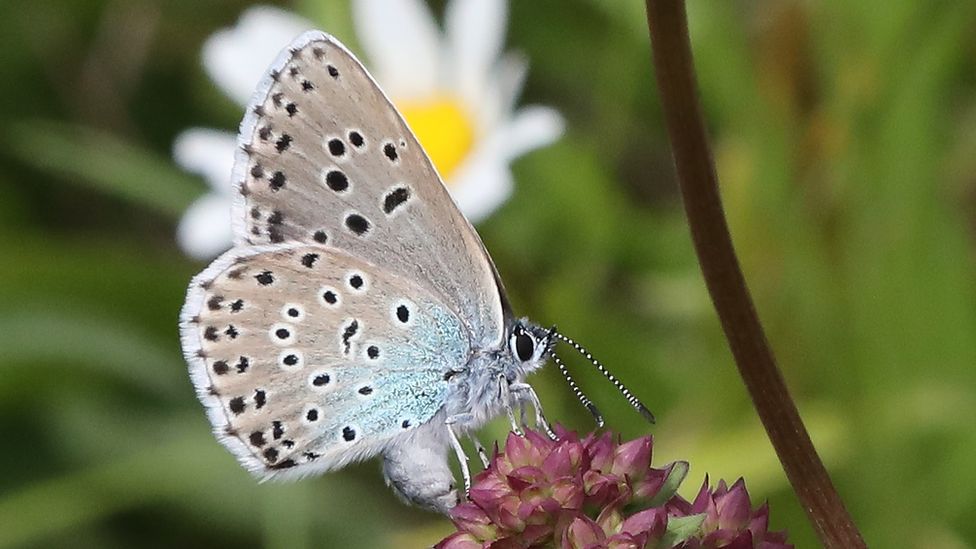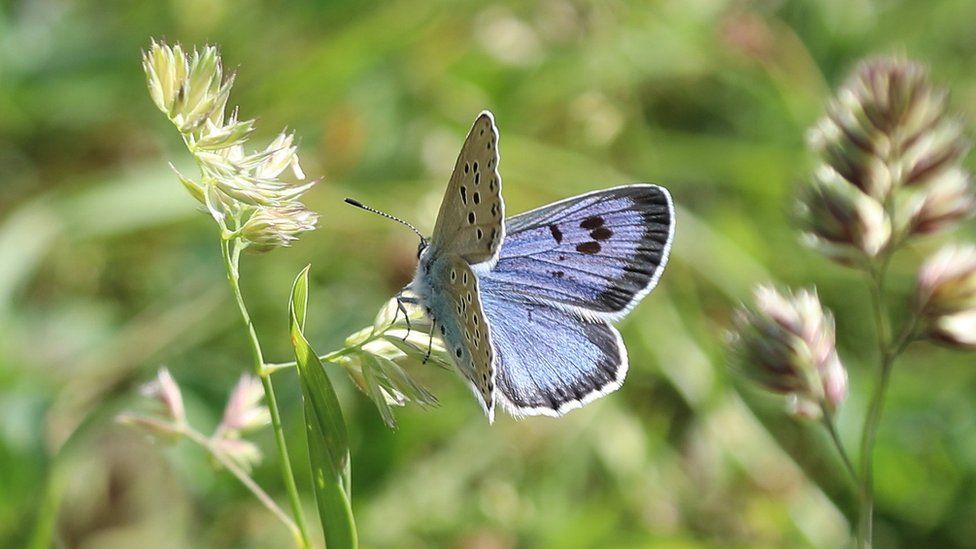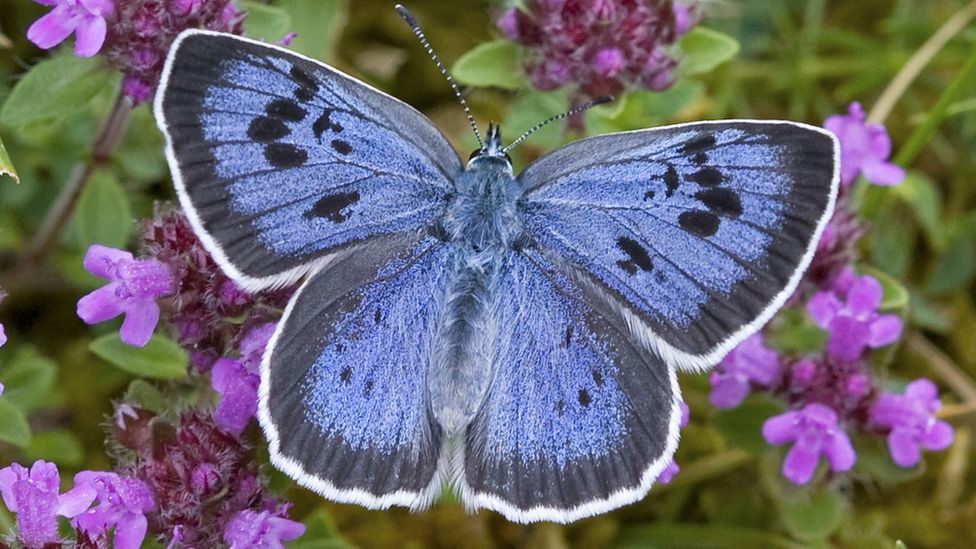Large blues have best summer in 150 years after scientists brought the species back from the brink.
 Image source, Jeremy Thomas
Image source, Jeremy ThomasAn endangered butterfly that was once extinct in the UK has had its best summer in 150 years.
The large blue butterfly is one of Europe’s most endangered insects but thousands have been recorded this summer in south-west England.
It is the result of a long-term conservation project, led by the Royal Entomological Society.
Scientists said the success story shows how species at risk of extinction can be saved.
Many other rare species also benefitted from the conservation work across around 40 sites in Somerset and in the Cotswolds.
The large blue was declared extinct in the UK in 1979. Four years later caterpillars were brought from Sweden in an attempt to reintroduce the species in England.
Research ecologist David Simcox, one of the duo who reintroduced the butterfly in 1983, said it was “incredibly satisfying” to see them now thriving.
“I didn’t have a grey hair on my head when I started. Now it’s all grey,” he told BBC News.

Image source, Royal Entemological Society
Back in the 1980s Mr Simcox and his colleague, Oxford University professor Jeremy Thomas, did not expect this type of success.
“Obviously you have hope, but the first 10 years were difficult, the national population was under 10,000 eggs,” Mr Simcox explained.
In contrast, this summer conservationists counted 750,000 large blue butterfly eggs.
From those, they estimated that around 20,000 butterflies flew, making the south-west of England the largest known colony in Europe.
The project saw conservationists focus on restoring a type of wild meadowland where the large blue likes to live.
“It’s one of the strangest butterflies in the world,” said Prof Thomas.
It leads a very unusual life, spending most of the year as a caterpillar inside red ant nests where it feeds on grubs. This lifecycle makes it more challenging to protect.
“This success shows that if we can understand the ecological requirements of very rare and difficult species, we can turn back the trend of decline,” Mr Simcox explained.
But while the large blue butterflies are now doing well, they remain endangered and their long-term future uncertain, he warned.

Image source, Butterfly Conservation; Keith Warmington
“Two bad years or poor land management could really go against the species.”
Extreme weather and climate change also pose a danger, particularly because large blues rely on flowering plants and ant nests.
Other rare insects that benefitted from the restoration project were the rugged oil beetle, rock-rose pot beetle, shrill carder bumblebee, downland villa and spotted beeflies.
The sites are run or owned by six organisations, including the National Trust, Somerset and Gloucestershire Wildlife Trusts, J & F Clark Trust, Natural England, and Oxford University.